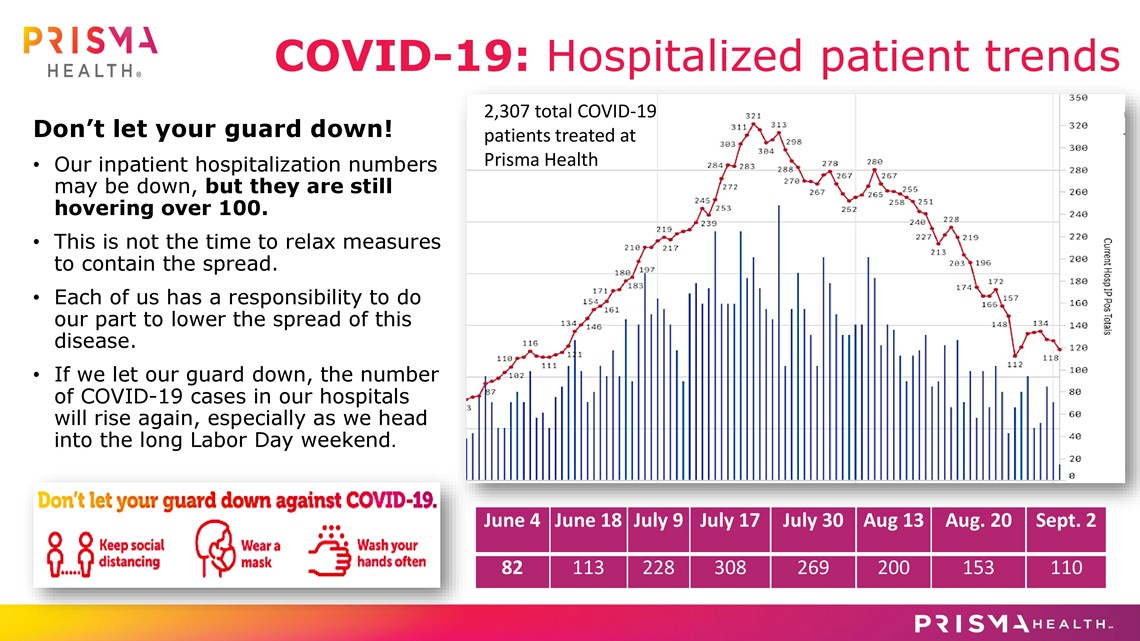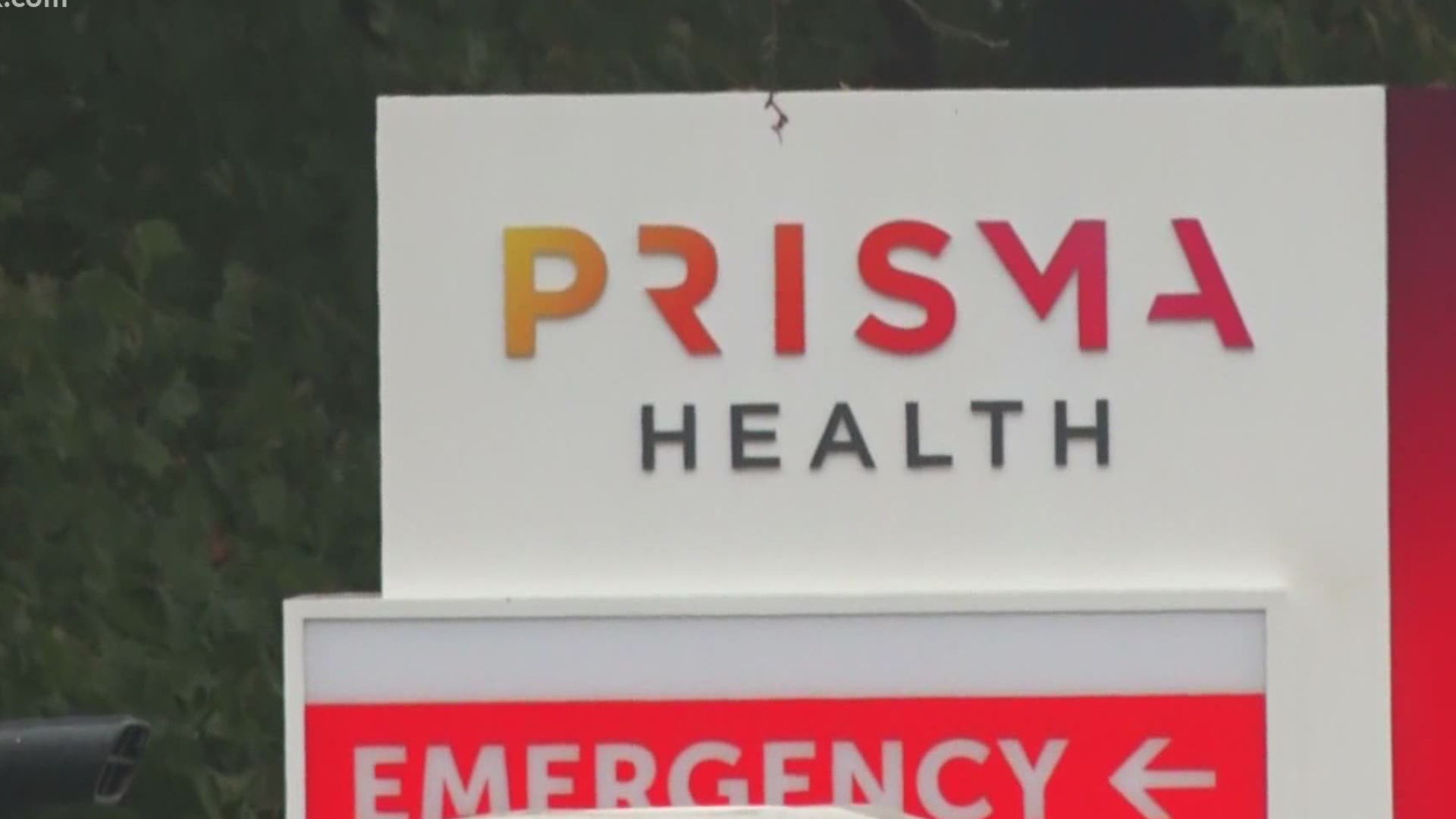COLUMBIA, S.C. — Prisma Health officials gave an update on Wednesday afternoon on how they're battling the coronavirus pandemic.
It's been nearly six months since the pandemic started. With the number of people testing positive for the virus, hospitals and health care workers have seen some of the greatest impact.
In recent weeks, the state of South Carolina has seen lower number across the state in coronavirus cases.
Dr. Steve Shelton is an emergency room physician and one of Prisma Health's leaders in their COVID-19 response. The doctor said their numbers are starting to go down.
"We've trended to 110 in-patients today which is not trend down from the 150 that we had last week," said Dr. Shelton. "While this trend is encouraging, it's essential that we continue to follow some of the necessary precautions in order to battle this virus."


Prisma Health has been able to successfully take care of more than 2,300 COVID-19 in-patients since the pandemic began.
The doctor said they continue to use therapies such as steroids, an anti-viral medication trial and plasma to treat COVID-19 patients. They are requesting people who have tested positive and recovered from the virus to donate plasma to help others battle the virus.
Prisma Health has opened up limited visitation. Visitors are allowed from 2 p.m. to 6 p.m. daily. A single 'care partner' can visit under limited circumstances.
According to the hospital, they've had a decline in the number of coronavirus tests they are performing.
One thing Dr. Shelton is concerned about is Labor Day Weekend and people gathering in large gatherings. He believes it might play a big role in cases this fall.
"We see the COVID-19 numbers going down and we'd like to see them continue in that direction. The last time we had a specific spike, it was just after the Fourth of July holiday. We hope not to repeat that," said Dr. Shelton.
Dr. Shelton also wants to remind people that the hospital is taking care of and treating non-COVID-19 patients.
"Nationally, there's a trend showing that community members are delaying care due to the pandemic. We're seeing this specifically in our physician's offices and hospitals. Many times, this is causing long-term complications for our patients," explained Dr. Shelton.
The health care system says they've been able to reach out to several vendors and sources to make sure they have plenty of supplies including PPE.
Prisma Health is also working with the University of South Carolina. On Tuesday, the school surpassed 1,000 active student cases according to the latest number released on their COVID-19 monitor webpage.
"Our instant command has met with them and review their process. I'm impressed with what they are doing at this point to control any spread that may occur there and we are here to support them," said Dr. Shelton. "We have the capacity at this time to take care of any concerns that they have."
The doctor said people from ages of 20 to 30 are the largest age group in South Carolina that is infected.
Some are concerned that the cases at the University of South Carolina will affect the greater Columbia community.
"We're watching that closely. USC is doing a great job of tracking their students, they're isolating them, medically monitoring them and providing resources for them. I feel confident that they are working hard to do that," explained Dr. Shelton. "They are closely monitoring what community impacts this may have and we'll make adjustments based on that."
As we head into flu season, Dr. Shelton believes it's important people make sure they have their flu shot.
"I would encourage a flu vaccination whenever you can get it. It may not be a bad idea to delay a little bit, although we have seen the first positive case of the flu in the state already," said Dr. Shelton. "We want to make sure we're able to track on that and stay ahead of it."
The doctor suggests people get their flu shot in early October.
With the economy continuing to open back up and kids headed back to school, Dr. Shelton believes it's important to follow precautions such as wearing masks, practicing social distancing and making sure to wash hands well.
"Each of us has a responsibility to do what is an important part to stop the spread of this virus," explained Dr. Shelton. "As a reminder, please also stay home if you are sick. As a health care system, we're doing our part and we need you to do your part."

